Coalburn, South Lanarkshire
200MW/400MWh Battery Storage Project
Zenobē’s planning application to develop a Battery Energy Storage System was submitted in July 2023 and is currently being considered by the Energy Consents Unit of the Scottish Government. The development has been recommended for approval by South Lanarkshire Council.
Part of our £750m portfolio of battery energy storage systems in Scotland
Zenobē designs, finances, builds, owns and operates battery energy storage systems (BESS). We help grid operators overcome the challenges in balancing supply and demand and overcoming power stability and constraints as we transition away from fossil fuels towards net zero.
By 2027, Zenobē is on track to deliver 1.2GW of battery power, which will make us one of the largest owners and operators of battery storage in the UK.
200MW /
400MWh
battery to reduce wasted wind energy
2027
site is expected to go into operation
6th site
expected to go into construction in Scotland
Project description
Our site sits on 7 acres (3 hectares) of rough grazing located immediately west of the B7078 approximately 3.5km south of Lesmahagow in the administrative area of South Lanarkshire Council.
The development will comprise the construction and operation of a battery storage scheme, with a total capacity of 200 MW. The scheme will connect to the Coalburn North Substation via underground cables. The principal components of the development include:
- Approximately 150 Battery Energy Storage units, each one approximately 16.6m x 3.7m x 3.5m in size, housing the battery blocks, inverters, heating, ventilation, and transformers
- Two high voltage supergrid transformers, associated switchgear, and enclosure walls
- Up to three medium voltage switch rooms, three spares containers, and three control rooms each approximately the size of a shipping container
- Columns for the infrared security lights and CCTV system up to 6m in height
- Internal access tracks approximately 5m in width
- Underground cables to connect to the substation
- A perimeter metal palisade fence 2.4m high
- Landscape planting and biodiversity enhancement measures
Project programme
The programme below highlights the main stages in the construction process through to the site becoming fully operational.
Planning
Zenobē submitted a planning application to the Energy Consents Unit (ECU) at the Scottish Government in June 2023.
South Lanarkshire Council is a statutory consultee to the ECU. They have provided a recommendation of approval to the ECU.
The Energy Consents Unit is now considering our application, and we expect a decision will be made in early 2025.
Preparing for Final Investment Decision (FID)
If approved, the project goes through detailed design, procurement of equipment, contract negotiations with suppliers and contractors, discharging pre-commencement planning conditions and undertaking technical financial and legal due diligence to allow our funders to formally sanction the go-ahead of the project. This usually takes about a year to complete.
Construction
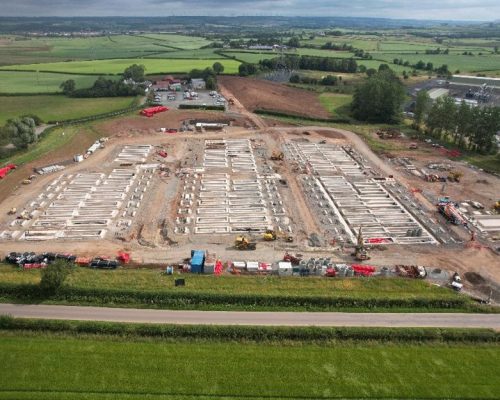
Zenobē’s BESS site in construction in Kilmarnock South, Scotland
Construction work in the BESS site begins with the clearance of site and the earthworks to create a level platform on which the development can be built. Once the earthworks are completed, the foundations and cable ducts will be installed and when complete, the batteries and other electrical equipment will be delivered to site, installed and connected. The construction phase for a site of this scale is about 18 months.
Commissioning
When constructed, the battery and associated electrical equipment undergoes rigorous testing over several months before it can be connected to the National Grid.
Operation
The contracted date of connection is mid 2027 at which point the battery site goes live and starts to deliver essential services to run the UK’s electricity network more efficiently. The operational maintenance requirements are very low so there will be hardly any vehicle movements to and from the site once construction is complete.
Decommissioning
After 40 years, all equipment and structures will be removed from site. Most equipment and materials can be reused or recycled and the land will be reinstated back to agricultural use.
Community benefit
We are developing a community benefit fund which will be administered by Foundation Scotland. We will engage with local community groups to determine how it will be managed and distributed.
Who are Zenobē?
Zenobē designs, builds and operates battery energy storage systems (BESS) that maximise the uptake of renewable power, ensuring it does not go to waste and can power our homes and our transport.
Founded in the UK in 2017, we will deliver 1.2GW worth of battery storage projects by 2026.
We’re investing £750m into the Scottish electricity transmission network over the next three years, to 2026. These sites will save more than 1 billion tonnes of CO2, over their 15 years of operation.
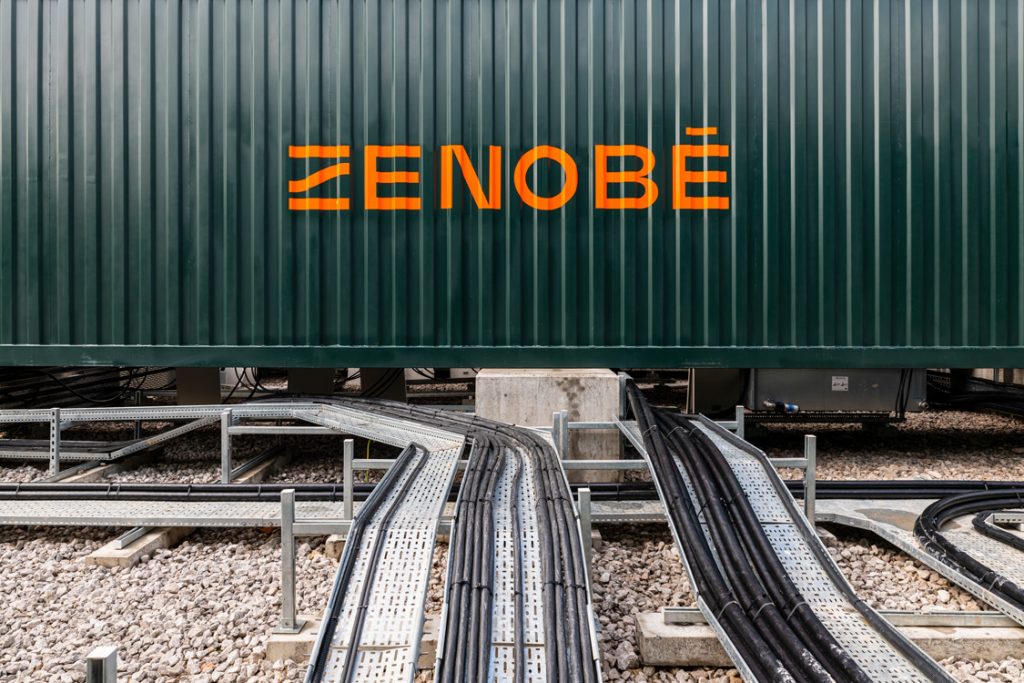
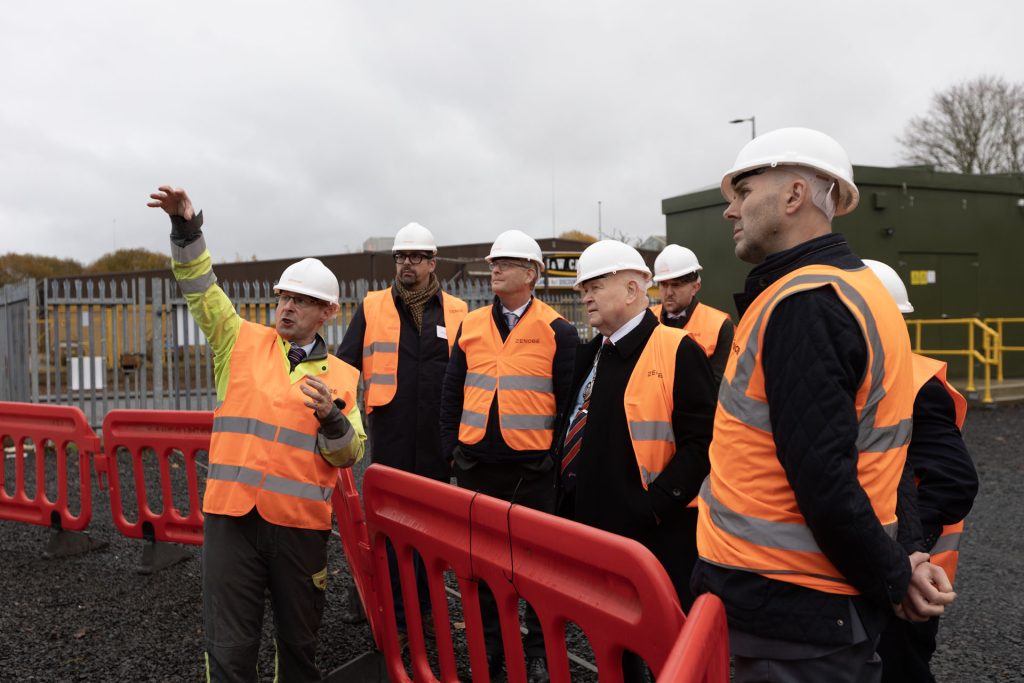
Scotland's commitment to net-zero
The Scottish and UK Governments have made a legal commitment to cut carbon emissions to net-zero. With the move away from fossil fuels, the demand for electricity will increase with the need to electrify transport, heating and more.
Battery storage plays a key role in helping the UK meet its net zero ambitions as it allows a greater amount of cheap renewable energy to be deployed whilst providing critical balancing and stability services without the need for traditional fossil power stations.
What is a grid-scale battery and what does it do?
Renewable energy is intermittent which means at any time there is a risk of it generating too much or too little in relation to demand from homes, businesses and transport.
Batteries provide ‘flexibility’ and the ability to balance the fluctuating supply and demand on the electricity system which comes with increased deployment of renewable and decentralised energy generation. For example, if wind turbines are generating more power than demand allows, batteries store this surplus energy. When wind generation is low but demand is high, battery operators release the stored electricity back into the system, ensuring this energy is not wasted.
Batteries also provide a wide range of additional services needed to maintain grid stability and keep the lights on. Our batteries have been the first in the world to provide fast reserve, to be used for reactive power and to manage grid constraints on the transmission network.
Our bespoke solutions range from ancillary, balancing and wholesale trading, to providing inertia, short circuit level, and voltage management.
Zenobē also provides non-wire alternative solutions that reduce or eliminate expensive network reinforcement costs. These are specific solutions that are essential to a decarbonised electricity system.
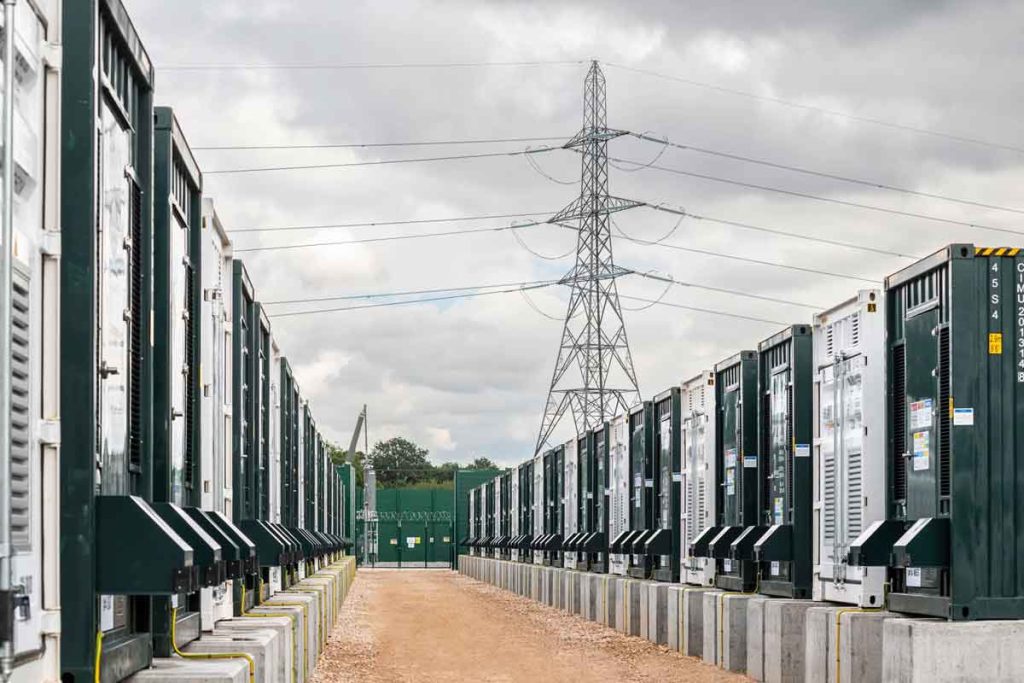
Why Coalburn?
Coalburn substation is located on the western 400kV electricity network between Scotland and England. It is responsible for transmitting renewable energy generated in Scotland to other parts of the UK where demand is greatest. Coalburn is at a strategic location on the transmission network, in an area with a high level of existing renewable energy, mainly windfarms, that connect into the substation.
Without without storage schemes like our proposed development on Carlisle Road, onshore wind and other renewable energy will be severely curtailed in the second half of this decade and gas power stations will be called upon to deliver stability services. As such, battery schemes like Carlisle Road are classified as Critical National Priority Infrastructure by the UK Government.
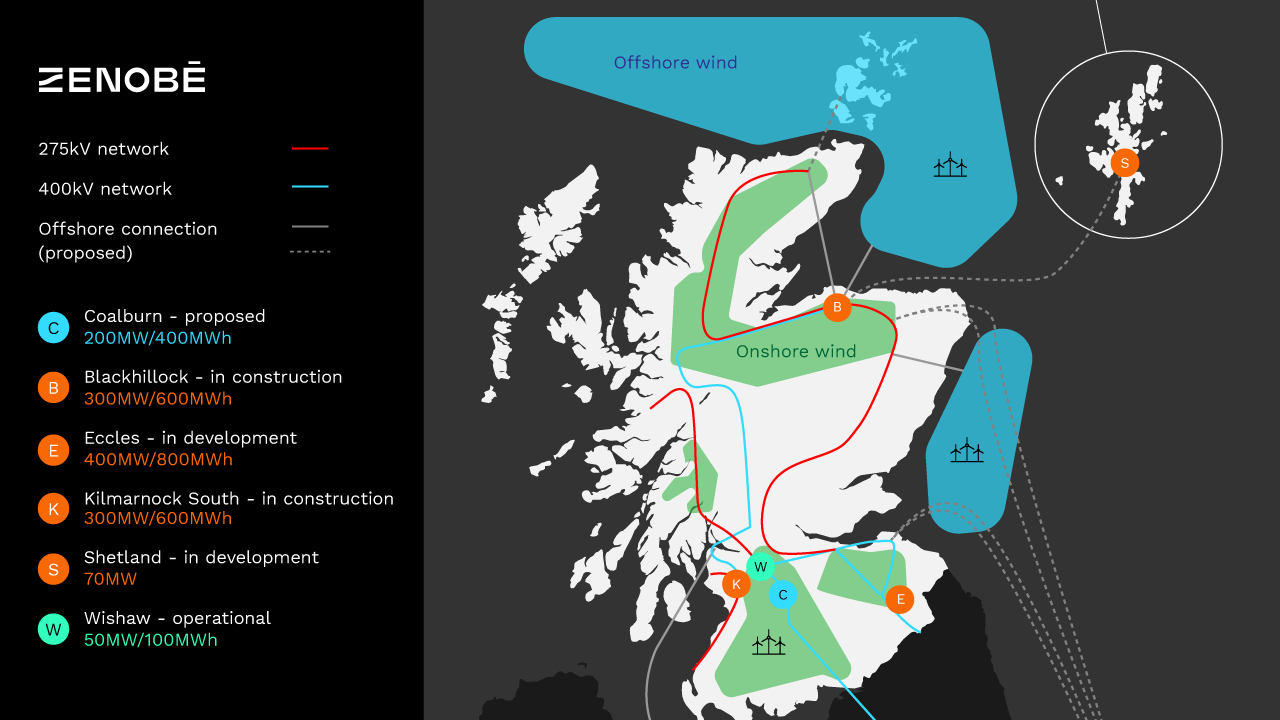
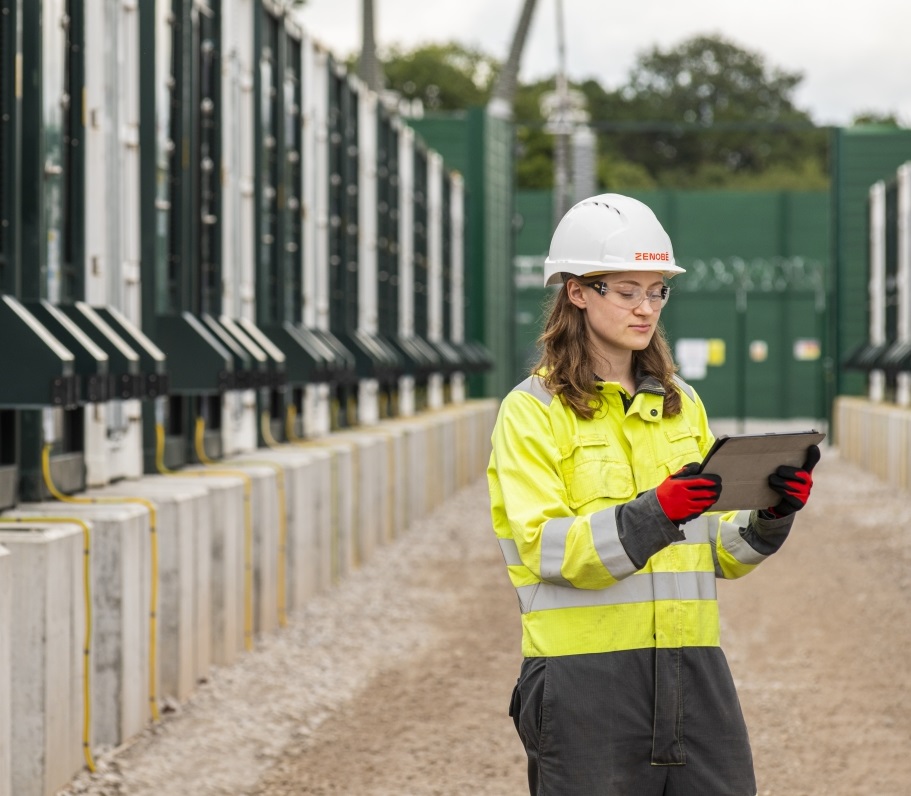
Do you have any questions?
If you have any questions about our battery energy storage system development, contact our Coalburn project management team
If you cannot find the document you are looking for, get in touch with our project development team by emailing contact.coalburn@zenobe.com
